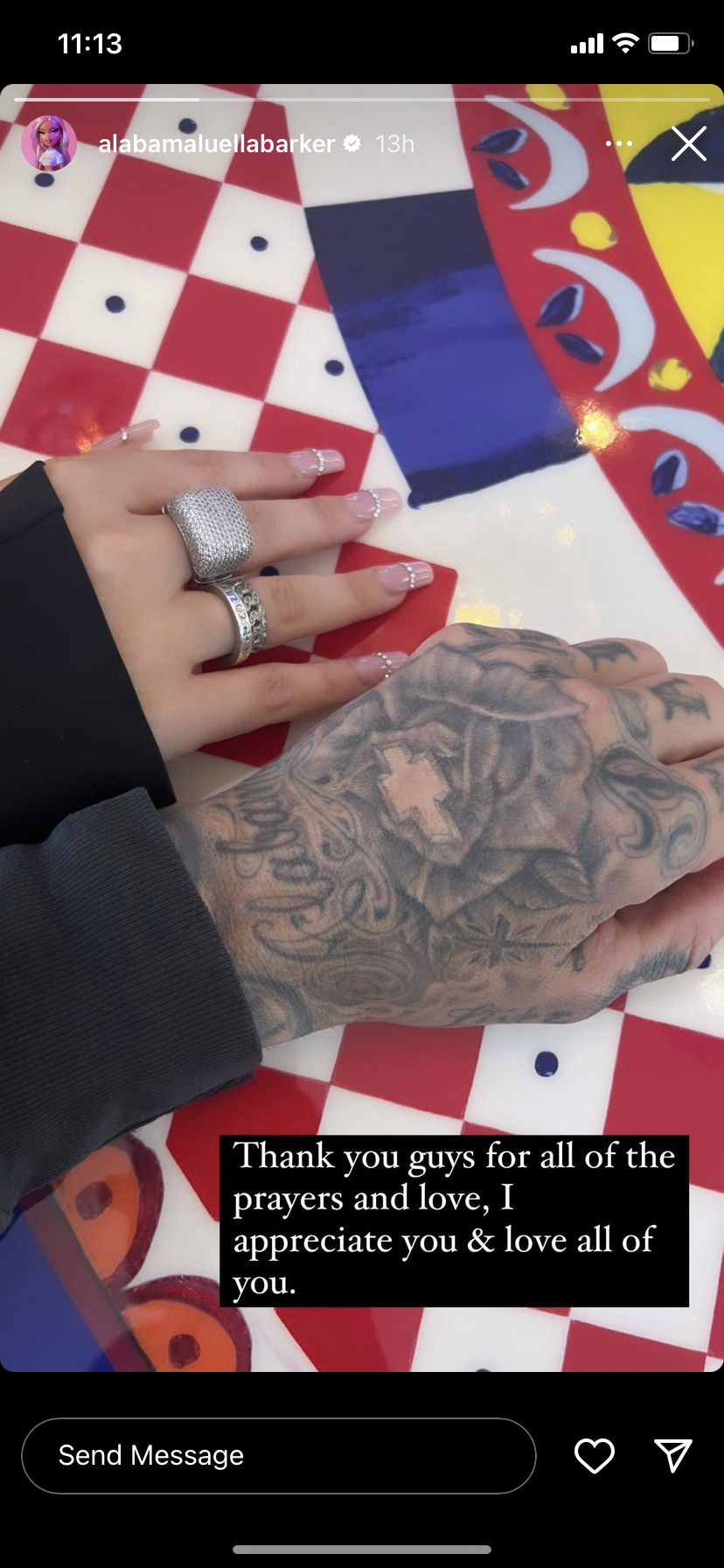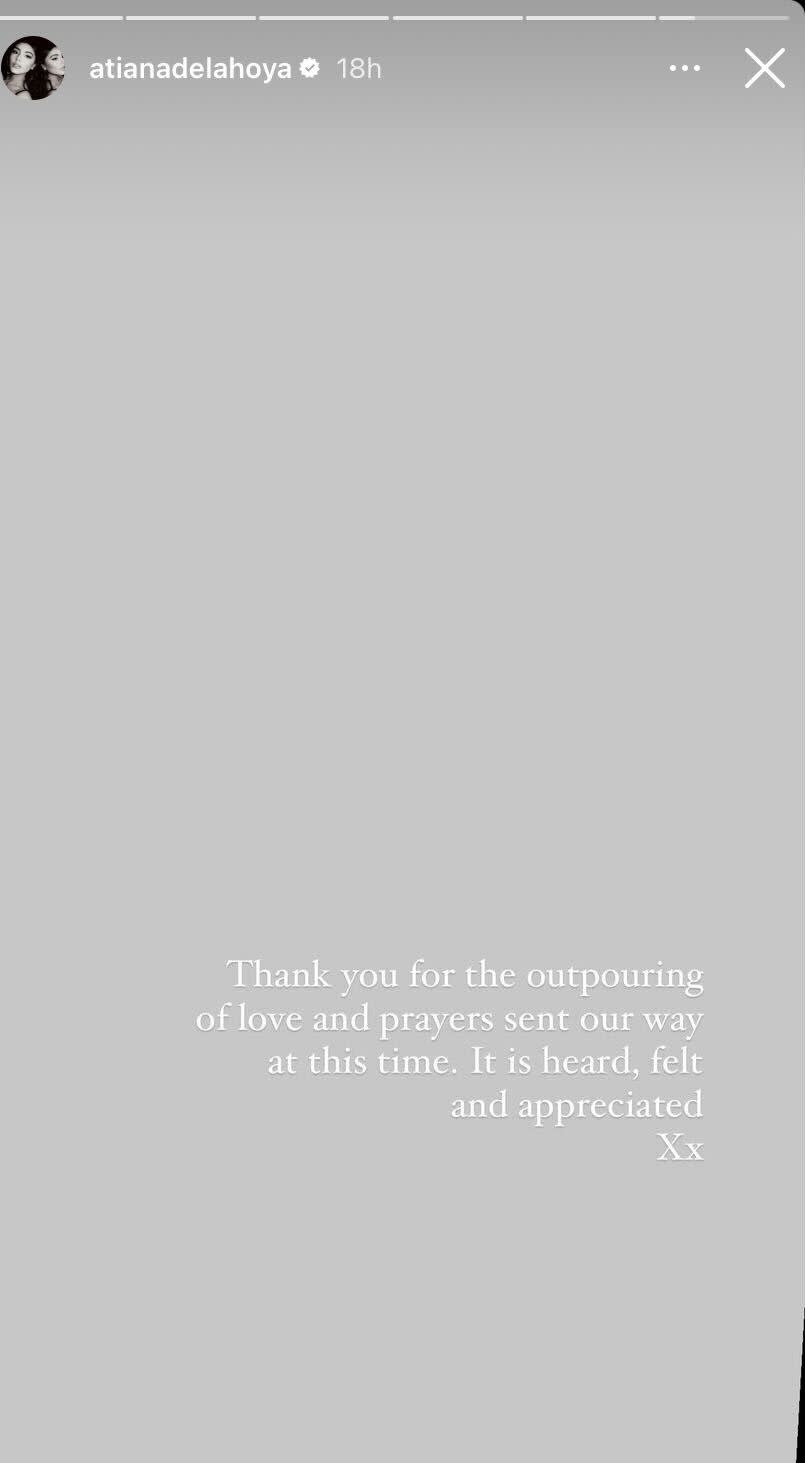Home » World News »
Travis Barker's family thanks fans for 'love and prayers' amid hospitalization
Travis Barker’s family has shared new updates amid his hospitalization with pancreatitis.
The Blink-182 drummer’s 16-year-old daughter, Alabama, shared a new photo of him since his diagnosis — an inflammation of the pancreas — was made public on Wednesday.
“Thank you guys for all of the prayers and love,” she wrote on Instagram along with a photo of their hands side by side. “I appreciate you and love all of you.”
It’s unclear when the photo was taken as Travis isn’t wearing a hospital gown. A previous photo Alabama — whose mom is Shanna Moakler — posted to TikTok showed her dad in a hospital bed. A rep for the musician hasn’t responded to Yahoo Entertainment’s request for comment.
Travis’s stepdaughter Atiana De La Hoya, 23, also shared an update on Instagram.
“Thank you for the outpouring of love and prayers sent our way at this time. It is heard, felt and appreciated,” wrote Atiana, who’s the daughter of Moakler and boxer Oscar De La Hoya.
Travis, 46, has been at Cedars-Sinai Medical Center in L.A. since Tuesday. Kardashian, whom he married in May, has been comforting him.
“Kourtney won’t leave his side,” a source told People magazine.
Kardashian was “worried” Tuesday when Travis was wheeled into the hospital on a stretcher. “They both were. Travis was suffering from extreme stomach pain and could barely walk.”
The insider said he’s “getting the best care at Cedars” with his doctors focusing on pain management while determining the extent of his condition and coming up with a modified diet for him.
According to Johns Hopkins, pancreatitis may be sudden (acute) or ongoing (chronic). Symptoms range from severe belly pain that can spread to the back or chest, nausea, vomiting, fever and rapid heart rate, among others. It can cause serious problems or be deadly in the most severe cases.
In the more manageable cases, a patient is typically in the hospital for a few days, given IV (intravenous) fluids, given pain medicine and medicines that fight bacterial infections (antibiotics). If it’s mild, patients can consume clear liquids or a low-fat diet. If severe, a patient may not be able to eat or drink for several days to let the pancreas — which makes enzymes that help break down food — rest.
Source: Read Full Article




